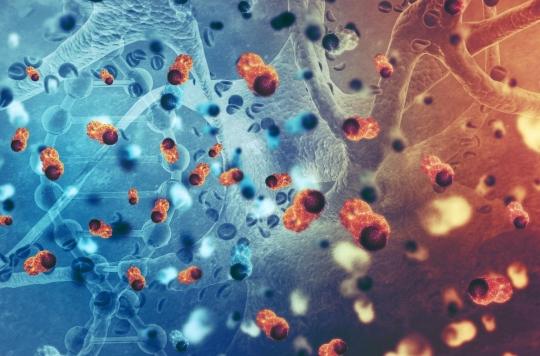In mice, a study showed that CAR-T cells are capable of destroying tumors where similar treatments had failed.

In scientific research as elsewhere, we must persevere. CAR-T cell immunotherapy treatment fails to cure some forms of cancer. Researchers have discovered that by slightly modifying the target of the drug, its action becomes effective. Their work has been published in the journal Science Translational Medicine.
Genetically modified cells
CAR-T cells, for Chimeric Antigen Receptor in English, are lymphocytes genetically modified in order to endow them with a chimeric antigen receptor. They are able to recognize certain cells then eradicate them. For now, few patients with blood cancer react positively to treatments using them. Tumor cells are capable of changing fast enough to no longer be recognized and thus manage to survive.
Results in mice and human tumors
In this research, the scientific team changed the target of CAR-T cells. Initially, the treatment was aimed at CD19 molecules, characteristic of lymphomas and leukaemias, the researchers modified CAR-Ts so that they act against BAFF-Rs, receptors present on the surface of immune cells that form tumours. These allow the tumor to survive and grow. In mice, the new treatment made it possible to regress tumors and extend the lifespan of the animals. Laboratory tests on human tumors have shown this method to be more effective than anti-CD19 therapy.
The researchers are continuing their work and clinical trials on humans should be organized soon.
.

















